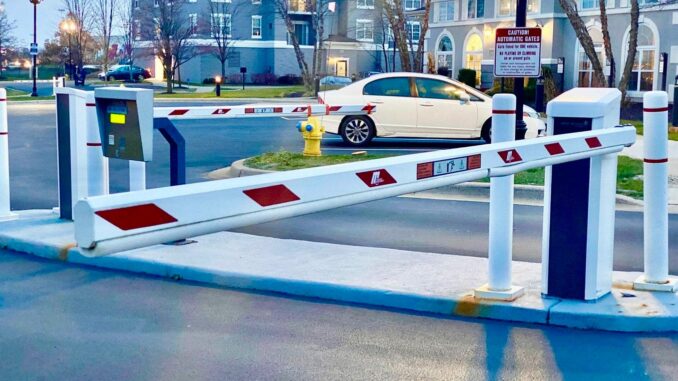
The Vehicle Entrance Control Systems market has been gaining significant attention in recent years. As security concerns continue to rise and urbanization accelerates, the need for robust and efficient entrance control systems has never been greater. This article delves into the dynamics of this market, exploring its components, drivers, challenges, and trends, while providing a comprehensive regional analysis.
Market Definition
What are Vehicle Entrance Control Systems?
Vehicle entrance control systems are technologies designed to regulate and monitor the entry and exit of vehicles in various facilities. These systems are essential for ensuring security, managing traffic flow, and preventing unauthorized access.
Key Components of Vehicle Entrance Control Systems
The main components typically include automatic gates, boom barriers, bollards, and license plate recognition systems. Each of these plays a crucial role in maintaining the integrity and security of controlled entrances.
Types of Vehicle Entrance Control Systems
Automatic Gates
Automatic gates are widely used in residential complexes, industrial sites, and commercial buildings. They offer a convenient and secure way to control vehicle access without the need for manual operation.
Boom Barriers
Boom barriers are commonly seen at toll booths, parking lots, and restricted areas. They provide a physical barrier that can be raised or lowered to allow or deny vehicle entry.
Bollards
Bollards are sturdy, vertical posts installed to prevent vehicle access to certain areas. They are particularly useful in pedestrian zones, high-security areas, and places with heavy foot traffic.
License Plate Recognition Systems
These systems use cameras and software to automatically read and record vehicle license plates. They are increasingly popular for their efficiency in managing and monitoring vehicle access in real-time.
READ MORE : The Rise of Remote Work: Trends, Challenges, and Future Outlook
Market Drivers
Increased Security Concerns
With rising incidents of vehicle-related crimes and terrorist attacks, the demand for advanced vehicle entrance control systems has surged. These systems provide an added layer of security by restricting unauthorized access and monitoring vehicle movements.
Technological Advancements
The integration of cutting-edge technologies such as IoT, AI, and machine learning has revolutionized vehicle entrance control systems. These advancements have made the systems more efficient, reliable, and capable of handling complex tasks.
Urbanization and Infrastructure Development
As urban areas expand and new infrastructure projects emerge, the need for efficient traffic management and security solutions becomes paramount. Vehicle entrance control systems are essential for maintaining order and safety in these growing urban landscapes.
Market Challenges
High Installation and Maintenance Costs
One of the primary challenges facing the market is the high cost of installation and maintenance. Advanced systems often require significant investment, which can be a barrier for smaller organizations and residential complexes.
Technical Limitations and Failures
Despite technological advancements, vehicle entrance control systems can still face technical limitations and failures. These issues can disrupt operations and lead to security breaches if not promptly addressed.
Privacy Concerns
With the increased use of surveillance and data collection technologies, privacy concerns have become a significant issue. Ensuring that these systems comply with privacy regulations and address public concerns is crucial for their acceptance and success.
Market Trends
Integration with Smart City Initiatives
The integration of vehicle entrance control systems with smart city initiatives is a growing trend. These systems are being designed to work seamlessly with other smart infrastructure components, enhancing overall city management and security.
Adoption of IoT and AI Technologies
The adoption of IoT and AI technologies is transforming the vehicle entrance control systems market. These technologies enable real-time monitoring, predictive maintenance, and advanced analytics, making the systems more efficient and intelligent.
Sustainable and Eco-friendly Solutions
There is an increasing emphasis on sustainability and eco-friendly solutions within the market. Manufacturers are developing systems that are energy-efficient and made from environmentally friendly materials, aligning with global sustainability goals.
Regional Analysis
North America
North America leads the market due to its advanced infrastructure, high-security concerns, and early adoption of new technologies. The presence of key market players and significant investments in smart city projects further drive the market in this region.
Europe
Europe follows closely, with stringent security regulations and extensive urbanization fueling the demand for vehicle entrance control systems. Countries like Germany, the UK, and France are at the forefront of adopting these advanced systems.
Asia-Pacific
The Asia-Pacific region is witnessing rapid growth in the market. The burgeoning urban populations, increasing infrastructure projects, and rising security concerns contribute to the market’s expansion in countries like China, India, and Japan.
The Vehicle Entrance Control Systems market is poised for substantial growth in the coming years. With increasing security concerns, technological advancements, and urbanization, the demand for efficient and reliable entrance control systems is on the rise. However, challenges such as high costs and privacy concerns must be addressed to ensure widespread adoption and success.
Leave a Reply